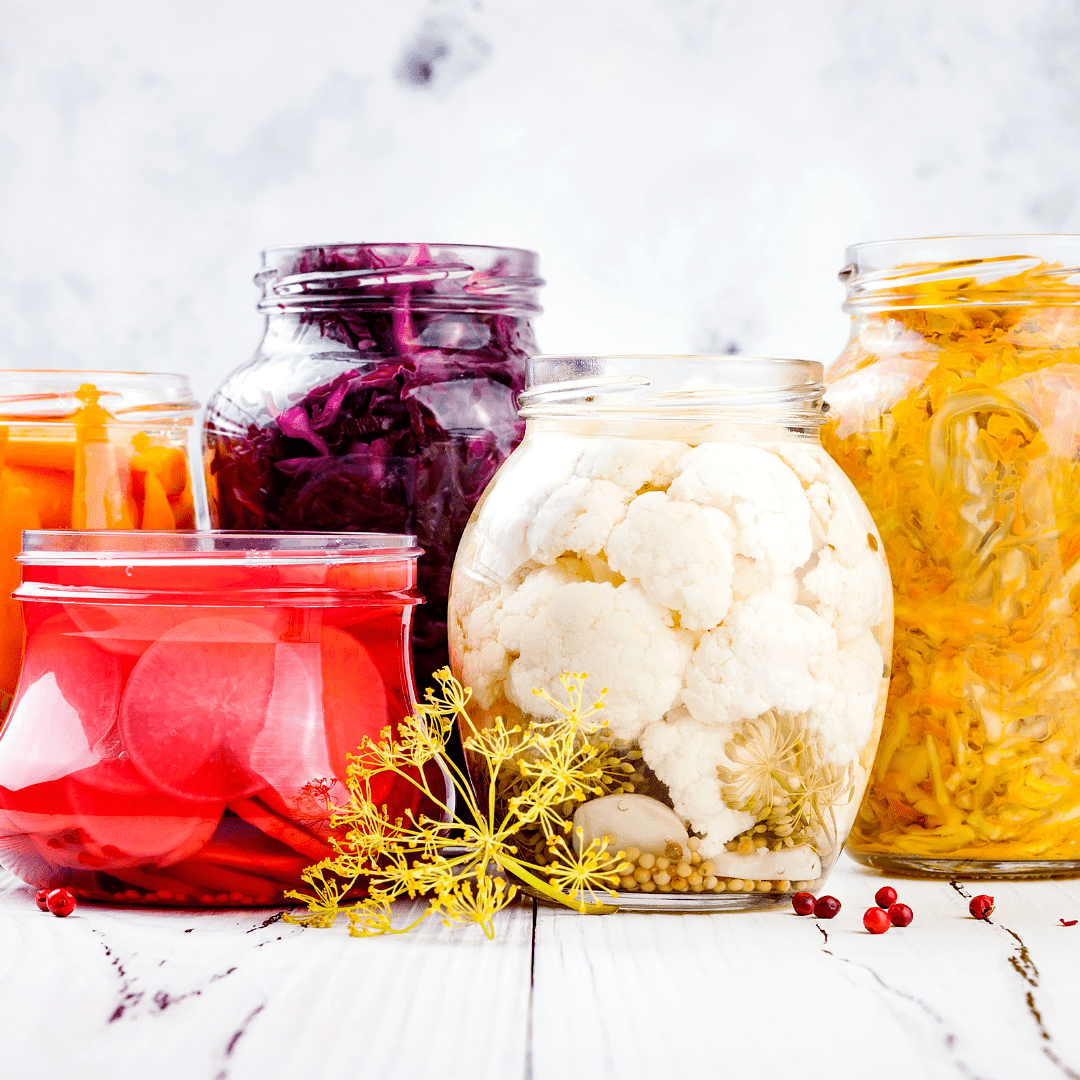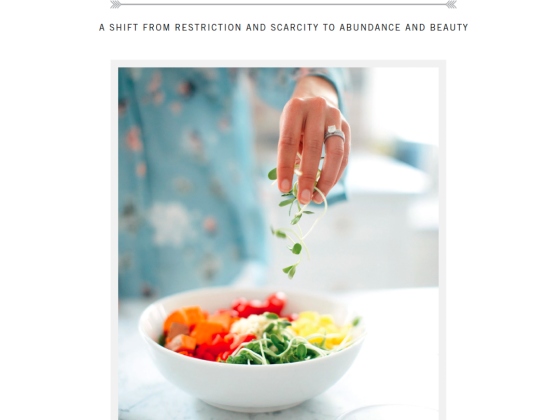If you are aware of what it takes to nurture your gut health, you may know that fermenting foods, a process that involves bacteria and yeast breaking down the foods’ sugars, can boost the probiotics (helpful bacteria) in your digestive system. But researchers have been studying the other potential benefits of eating fermented foods, which you may recognize most often as sauerkraut, kimchi, probiotic yogurt, kefir, tempeh, among others.
Researchers in one study concluded that they often see depression, anxiety, and mental disorders occurring at the same time (comorbid) with gut problems, “suggesting a bidirectional relationship between mental health and gut function.” They explain this could be possible due to the interplay between inflammation and immune activity, as well as dietary deficiencies, neurotransmitter deregulation, and other factors. They’ve also concluded that in animals, fermented foods have helped with gut function and depression/anxiety, but they conclude that research is still “sparse” on the true relationship in humans.
This isn’t surprising. The Vagus Nerve, which runs from your brain to your digestive tract, acts as a highway of communication between these two systems. Whereas it once once thought that our various biological systems acted in isolation, it is now known that they are much more interconnected as traditionally believed. We now know that 90% of your serotonin (the “feel good” neurotransmitter) is produced in your digestive tract, making it impossible to separate food from mood.
Another study dives into the extensive health benefits of fermented foods, citing evidence that the living microorganisms they contain are genetically similar to probiotics. Therefore, the study suggests, eating fermented sausage, some wines and beers, yogurt and cultured milk, sauerkraut and kimchi, can improve your overall health. Since we know overall health and mental health work hand in hand, this shows some progress for scientists looking for a direct link to improving anxiety and depression.
A third study emphasizes the connection between antioxidant and anti-inflammatory activity, saying there’s a direct role to the gut to rain communication. It also shows just how important diet can be when it comes to fighting depression, calling it an “ancient art.” Fermented foods, which were so often included in traditional dietary practices, “have the potential to influence brain health by virtue of the microbial action that has been applied to the food or beverage.” Finally, they explain that mood-regulating vitamins such as B vitamins, magnesium, and zinc, may have a magnified quality and impact in fermented foods.
Finally, another study showed a direct correlation between probiotics and improvements in psychiatric disorder-related behaviors, including anxiety, depression, and more. They specifically analyzed Lactobacillus and Bifidobacterium in animals and humans. These early findings point scientists towards further exploring fermented foods in addition to probiotics, as they may have the same impact on the gut (and therefore, maybe, the mind).
So the next time you hear “you are what you eat,” consider just how many body systems that old adage applies to. Research such as this sets an exciting tone to not only learning more about natural ways we can heal ourselves holistically, but the role that gut health will play in wellness going forward.










